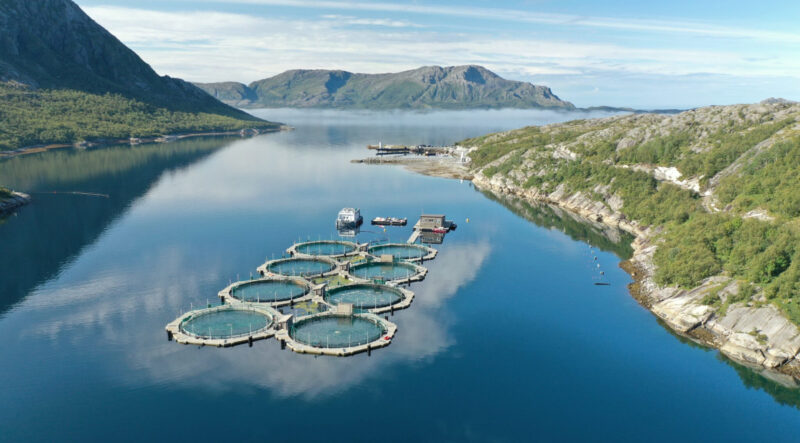Aquaculture innovations keep driving salmon farmers in BC
New aquaculture systems being introduced to help further minimise interactions between wild and farmed salmon.
By Fabian Dawson
SeaWestNews
Two new innovative systems that will help minimise interactions between wild and farmed salmon are set to hit the waters of BC as the government works on a transition plan to define what the future of ocean-based aquaculture in the province will look like.
Akvafuture, a Norwegian company that raises salmon in closed barrier pods to isolate wild and farmed fish while keeping sea lice at bay, said it is close to signing a deal with a First Nation in BC to use the technology locally.
Dean Trethewey, the company’s Canadian managing director and a veteran of BC’s salmon farming industry, said Akvafuture plans to apply for tenure and licensing after announcing its impending partnership with a First Nation soon.
“We plan to take part in the transition plan and our technology has been met with great enthusiasm by government officials and First Nations,” he told SeaWestNews.
“Our goal is to farm the most sustainable and sea lice free salmon on the market…Who knows how the industry will look like 10-20 years in the future, but it will certainly depend on the decisions that are being made right now,” he said.
“Our technology closes the door on many of the perceived risks that environmental groups claim against the industry.”
According to Trethewey, the system collects feed and fish waste to be recycled on land to produce fertiliser and biofuels.
“It’s a closed barrier system that sits in the ocean with no pollution entering the ocean,” he said.
The technology, which requires only about a fifth of the power needed for a similar sized land-based farm, has been in use in Norway for the past 10 years to raise about 30,000 tonnes of salmon. The biofuels from Akvafuture’s farms are used to run buses.
“In all of those 10 years, we have had no issues with sea lice,” said Trethewey, adding Akvafuture plans to work with the already advanced salmon farming industry in BC to introduce the technology in Canada.
Meanwhile, Campbell River-based Poseidon Ocean Systems and Mowi Canada West said they have combined forces to install and test novel technologies at the Monday Rock salmon farm off Vancouver Island to improve fish welfare and performance and reduce interactions between wild and farm-raised fish.
This farm has been equipped with 15-meter-deep barrier shields and perimeter air bubble curtains, along with Poseidon’s cutting-edge oxygen systems, to help avoid naturally occurring oceanic threats such as plankton blooms, hypoxia, and sea lice.
“Three quarters of the farm’s enclosure is physically separated from the surrounding environment to a depth of 15 metres, so this technology developed by Poseidon is critical to allow us to create healthy living conditions within the space where we raise our salmon,” said Rodrigo Cristi, Mowi’s technical manager.
“The salmon have been growing in the system for six months now and fish condition, which includes size and health, are looking very promising so far,” he said.
Matt Clarke, Co-Founder of Poseidon, said his company’s integrated technology platform allows farmers to affect the welfare of the fish actively and positively as they grow.
“Since our company was founded in 2015, Poseidon has been focused on bringing a science-based, aquaculture-specific approach to this challenge and the system now installed at Mowi’s farm site was developed by our engineers for this application.”
The salmon raised at Monday Rocks are expected to be ready for market in the second quarter of 2024.
Federal Fisheries Joyce Murray who is ideologically opposed to open-net aquaculture is working on a transition plan for salmon farming in BC, that will impact more than 4,700 jobs and $1.2 billion in economic activity annually.
About 40 per cent of BC’s in-ocean salmon farming sector has already been closed, despite Department of Fisheries and Oceans (DFO) scientists and court rulings stating that the salmon farms in BC pose less than a minimal risk to wild stocks.
Image shows a Akvafuture salmon farm in Norway

